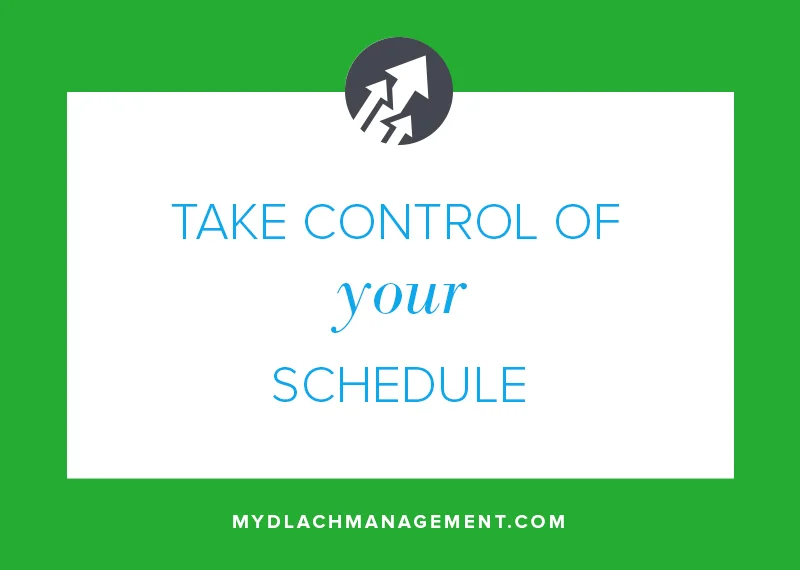Researchers conducted a global Gallup poll and found that only 13 percent of employees are engaged at work. If this stat is true, low engagement is at epidemic levels and it’s absolutely affecting productivity, innovation and competitive advantage.
When I tell CEOs that they need to give themselves and their employees permission to be human, I sometimes get skeptical looks. It sounds so far from the conversations we have about operational efficiencies, priorities, and performance that it may sound unrelated or even hokey. But really, giving permission to be human is a reference to the fact that as humans, we all have a set of natural strengths and natural weaknesses, and when we focus on developing and leveraging our natural strengths, we grow. If we focus on and obsess over our weaknesses and past failures, we become our own impediment to realizing our full potential.
Think of what you could do if you could take control of your schedule to find an extra hour each week. And now think of what your company could do if each and every one of your employees found an extra hour of time in their week. What would be the productivity impact of all that extra time? What about the financial impact?
Recently, I was asked a great question: If you want to be the kind of leader who encourages the flow of ideas and feedback, how do you keep your team members from getting discouraged when their idea didn’t make the cut?
Over the years, I’ve been called into many companies to assist with the restoration of relationships that have deteriorated due to one or both parties being unwilling to engage in some difficult conversations. These situations took many forms: the VP whose abrasiveness was tanking partnerships, the executive whose passive yet judgmental management style had built distrust within the leadership team, the sales leader who communicated frequently with passive-aggressive emails.
I work with executives, owners, and managers—high achievers and highly motivated individuals. Such people and personalities clash at times, especially in intense, high-octane business environments.
To discover great talent, start looking inside your own company first
When I’m invited into a company to help leadership reignite underperforming teams, I always find incredibly talented people, who often feel devalued and uninformed. Business leaders are ultimately responsible for the situation, but it’s usually not intentional.
An Underperforming Sales Team is in the Spotlight
A couple of years ago, I was facilitating a sales meeting with a new client. With a history of mediocre sales performance, the sales team was complacent and had worked its way into a multi-year sales slump. Early in our sales improvement process, the sales manager mentioned that in years past, she had a manager who made all of his sales reps answer the “help me/hurt me” question at the end of each month.
Personal and corporate growth requires an openness to receiving feedback. However, every so often I have a coaching engagement with a client who remains closed, defensive and not open to receiving stakeholder feedback. Find out how big of a difference taking accountability in the workplace can make for your team and sales growth.
Learn how to create a personal income goal to double your income (or more!) this year. As an executive coach, I've helped sales professionals unlock their true potential and I'm sharing the keys to success in this post.
Do you have an invisible wall that hinders building employee engagement? Use these 3 steps to identify your walls, establish trust and start communicating effectively with your team. An engaged team is a successful team.
Before complacency creeps into your organization, it’s critical to ensure your management style and process are designed to attract and retain top talent, while repelling under-performing sales reps.
I happened across an article not too long ago that offered five ways to tell if your employees dislike you. Maybe that seems a bit harsh, but the author was right on. If, upon honest consideration, you recognize any of these warning signs within your organization, it’s time to dig deeper and engage in some self-reflection:
Is your personal brand contagious? Learn how to build a powerful personal brand and how your sales team can benefit.
Most employees aren’t ecstatic to hear the words “performance review time.” While a good portion know it’s important for their personal and professional development, the words still create a sense of discomfort. And for those who are defensive about performance reviews, those words engender more than discomfort.
Exceptional managers know that maintaining a healthy company culture is complicated. Learn the 3 common elements that these managers use to build culture.
It’s important to realize that the rate with which your company grows is directly tied to the rate with which your employees grow. And as an exceptional manager, one of your most important jobs is employee development & professional growth.
An isolated manager creates an unhealthy culture for their team and organization. Find out how bad management styles are affecting your growth & what you can do to fix it.
We know who they are in our workplace – the chronic grumblers. The always negative employee. These members of your team may have high potential for success, but they are also high maintenance. Everything around them is broken, nothing makes them happy, and they seem to love to stir the pot and create discontent among their co-workers.
Looking to uplevel your business growth & sales team's success? Use these 6 factors to help find a top executive coach who's the best fit for you and worth your investment.
Depending on your perspective, employee turnover can be the best thing to happen to your company and the individual employee. Learn more in this post.
As you work toward creating a high-performance culture, Mydlach Management helps assess management's effectiveness in creating an honest and open dialogue.























